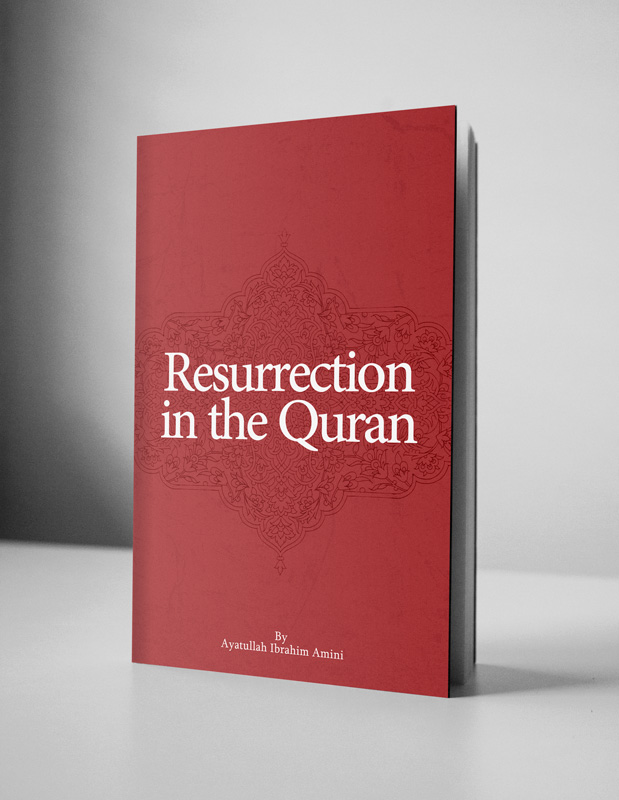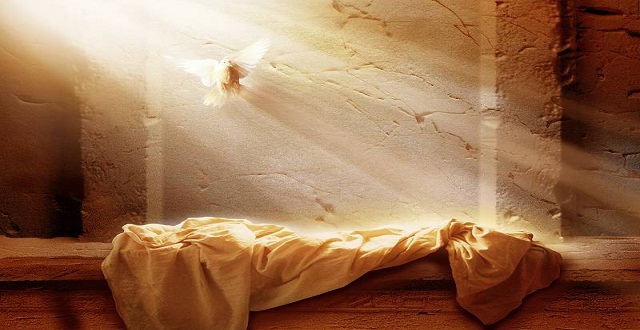
If we take this world into consideration, without concerning ourselves with any other, it will be meaningless and empty.
It is similar to the time of life when a fetus is not in this world, but is in the womb.
A child who is within its mother’s womb and who is imprisoned for months in this darkness and narrowness, if it was to have wisdom and intellect, and was to think about its being a fetus, it would be very surprised.
Why am I imprisoned in this dark prison?
Why do I have to move in water and blood?
What result will the end of my life have?
When did I come, why have I come?
But if one is made aware of the fact that this is a Preliminary stage, that their organs are formed here, they gain strength and become prepared for movement in this great world.
After the passing of 9 months, it is freed, it moves into a world in which the sun shines, the moon reflects, green trees and streams of water flow and multiple benefits are attained; then it takes a deep breath and says, “Now I have understood the philosophy of my existence here.”
This is a preliminary stage; this is a place to fly from; this is a class to pass through in order to move towards a great university.
But if the life of a fetus is cut off from life in this world, everything will become dark and meaningless – a frightening prison with purposeless and harmful results.
This is exactly the point in the relation of life in this world with life after death.
What is the point in our living more or less 70 years in this world?
For a time, we are immature and inexperienced and by the time that we become mature, our life ends.
For a time, we must study and work and by the time that we study and learn, we have reached old age.
Why are we alive? To eat, wear clothes and sleep? And repeating this life day after day.
Is this extensive universe, this expansive world and the storing of all of this knowledge and experience, all of these teachers and instructors, all repeated for eating, drinking and putting on clothes?
It is here that the meaninglessness of this life will be clear to those who do not believe in the next world because they cannot reckon this small issue to be the goal of life and they do not believe in the next world either.
Thus, it can be seen that a group of them try to commit suicide and end this absurd life. But if we believe that this world is a pasture for the after life or that it is a field which must be planted and then be taken as eternal life, that the world is a university in which we must learn and prepare ourselves for life in an eternal world, and that the world is a bridge which we must cross over, in this case, the world will not appear to be absurd and futile Rather it will be the beginning for an eternal life and no matter what efforts we make towards it, are small.
Yes. Faith in the resurrection gives meaning to human life and frees a person from anxiety, worry and absurdity.
Faith in the Resurrection is an Important Factor in Training
In addition to this, belief in the existence of a Court of the Day of Judgment is most effective in our daily lives.
Assume that it were to be announced in a country that there will be no punishment for such and such a crime and no records will be kept, that people can, with a clear conscience, live the day as they so desire. They give the day off to the police, the army and security forces. They lock the doors of the courts and until the next day when life will begin as normal, no crimes will be punished.
How do you think that society will spend that day? Belief in the resurrection, faith in the Day of Judgment, is in no way comparable to this world.
The details of this Court are as follows:
1. It is a trial, in which explanations are ineffective, nor can relations rule over norms nor can false statements be presented to change the decision.
2. It is a court which does not need the facilities of this world and because of this, it is not extended to take more time; it is studied like lightening and a decision is given immediately.
3. It is a court in which the file or record of people is their own deeds, that is, their deeds will themselves be present and made known by their actions in such a way that there is no way to deny them.
4. The witnesses in that court are his or her hands and feet, eyes and ears, tongue and skin and even the earth and the walls of a house in which there was sin or good deeds were committed will be there, witnesses which are like the effects of nature and cannot be denied.
5. This court is one whose Judge is God Almighty, God Who is Aware of all things, is Needless of all and Who is more Knowing than all others.
6. Beyond this, the punishments there are not contractual; it is our acts themselves which take form and will be alongside us and they will punish us or draw us into blessings.
Faith in such a court takes a person to the point that Hadrat ‘Ali says, “I swear to God that if I were to spend from night to the morning upon thorns and if my hands and feet were to be chained in the day and I were to be pulled through the streets and the bazaars, I am more willing to have this happen than to present myself to God’s Court if I have committed an oppression against one of God’s creatures or if I have usurped the rights of another.” (Nahj al-Balaghah, Sermon 224)
Can a Person with such Faith be Deceived?
It is faith in this Judgment that makes a human being place his brother’s hand near the fire to burn when he has extended it into the public treasury. And when the brother screams in pain, he advises him, “You are screaming from the flame of a toy fire which is in the hands of human beings whereas you take your brother to a fire which is extremely frightening and which is lit by the anger of the Creator?” (Nahj al-Balaghah, Sermon 224)
Can a person with such faith be deceived?
Can one buy his conscience with bribery?
Can he, with encouragement of threats, be made to deviate from the way of truth to the way of oppression?
The Holy Qur’an says when the scroll of deeds is shown to sinners, they cry out:
“Ah! Woe to us! What a book is this! It leaves out nothing small or great but takes account thereof!” (18:49)
In this way, powerful waves of the sense of responsibility grows towards the spirit of the human being which controls the human being from deviating, going astray, committing oppression and aggression.
Think and Answer
1. If there was nothing after this limited life and the situation of this world, what would happen?
2. Why does a group of those who deny the Resurrection deviate?
3. What are the differences between the Court of the Day of Judgment and the courts of this world?
4. What effects does faith in the Resurrection have upon the deeds of a human being?
5. What did Amir al-Mu’minin, ‘Ali, peace be upon him, do to his brother Aqil? What did he want and what response did ‘Ali give him?
Faith in the Resurrection is an Important Factor in Training
Can a Person with such Faith be Deceived?
Think and Answer




